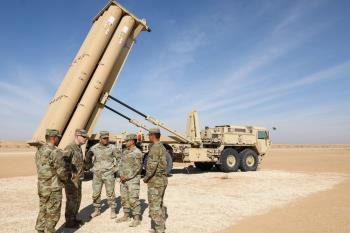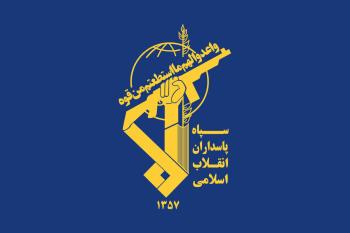Jaish al-Fatah, which translates to the Army of Conquest, is yet another extremist group among many other foreign-backed terrorist units that have been fighting against the Syrian army since the conflict broke out in 2011.
Although some have tried to distinguish the al-Qaeda-linked al-Nusra Front from ISIS, the so-called Islamic State in Iraq and Syria, they are nonetheless the two sides of the same coin. Despite divisions and rivalry, their loyalty and funding, they are all fighting to fulfill the same aim, using the same terrorist means, against the same country. The difference between al-Nusra and ISIS is meant to diversify the terrorist groups in Syria, adhering to different types of communities, and attempting to pass off a so-called moderate opposition to legitimize the war against President Bashar Assad's government under the pretext of seeking "freedom and democracy" in the Arab State.
Jaish al-Fatah is a cross-breed of various terrorist groups that have emerged since the war ignited, groups made of both foreign and Syrian militants who picked up arms against Damascus and everything it represents; Arabism, resistance, and freedom from western hegemony. Mainly comprising the al-Qaeda affiliate al-Nusra Front as well as other extremist factions such as the Muslim Brotherhood-linked Sham Legion, the inter-terrorist coalition declared its formation on 24 March, 2015.
Jaish al-Fatah managed to occupy the northwestern Syrian governorate of Idlib, near the Turkish border, exerting its control over towns and cities, and making it the second terrorist-held province in the country after Raqqa. Some 12,000 fighters are reported to have seized Idlib and Jisr al-Shugur from the Syrian army in a series of offensives that kicked off in March.
In May, the terrorist coalition formed a new branch in the Qalamoun region along the border with Lebanon. Later in the same year, Jaish al-Fatah's subdivisions further spread to the southern region of Syria encompassing Quneitara and Daraa.
The formation of Jaish al-Fatah is the product of a regional scheme drawn by the intelligence services of Saudi Arabia, Qatar, and Turkey and brought to life by extremist factions on the ground. The support these countries have provided is arguably the most devious element of this creation, bearing in mind that Riyadh, on the one hand, and Doha and Ankara on the other have had rifts over the Muslim Brotherhood. Jaish al-Fatah is a freak show of different parts, stitched and sown together, asymmetrical and grotesque but functioning nonetheless as a servant of terrorist ideology.
This raises a question mark over Jaish al-Fatah's conception. It is after all a branch of terrorism under a different name that many analysts perceive as a branding strategy aimed at erasing any record of failures on the ground and severe infighting. It's an act of whitewashing defeat after defeat and mitigating the effect of the notoriety of extremist groups.
There is no such thing as moderate rebels in Syria just like there is no such thing as a peaceful terrorist. Under the umbrella of terrorism, al-Nusra, ISIS, and Jaish al-Fatah among others have succeeded in distorting the face of Syria.
"What's in a name?" is an epic question that has traveled through centuries, the answer to which, in light of current events, can be answered with:
A terrorist by any other name would still reek of blood.


























